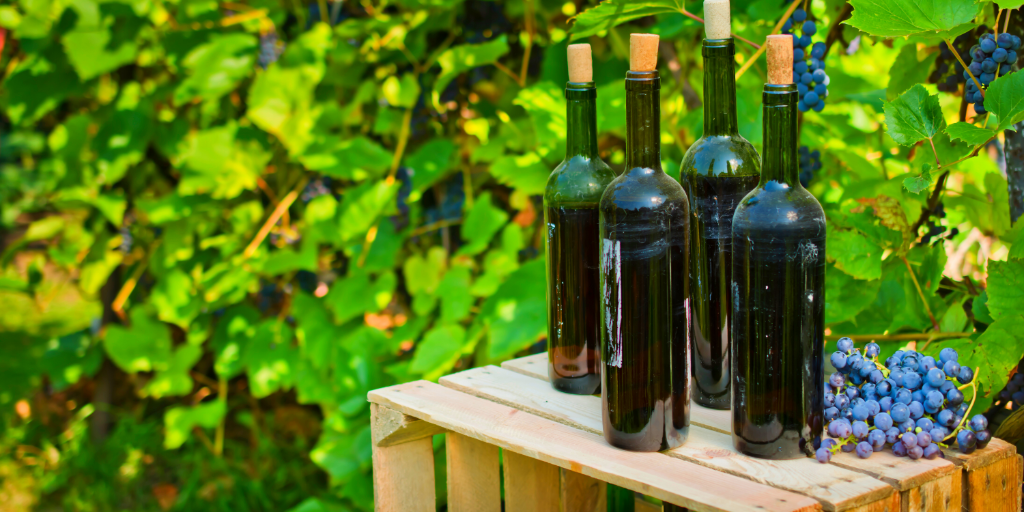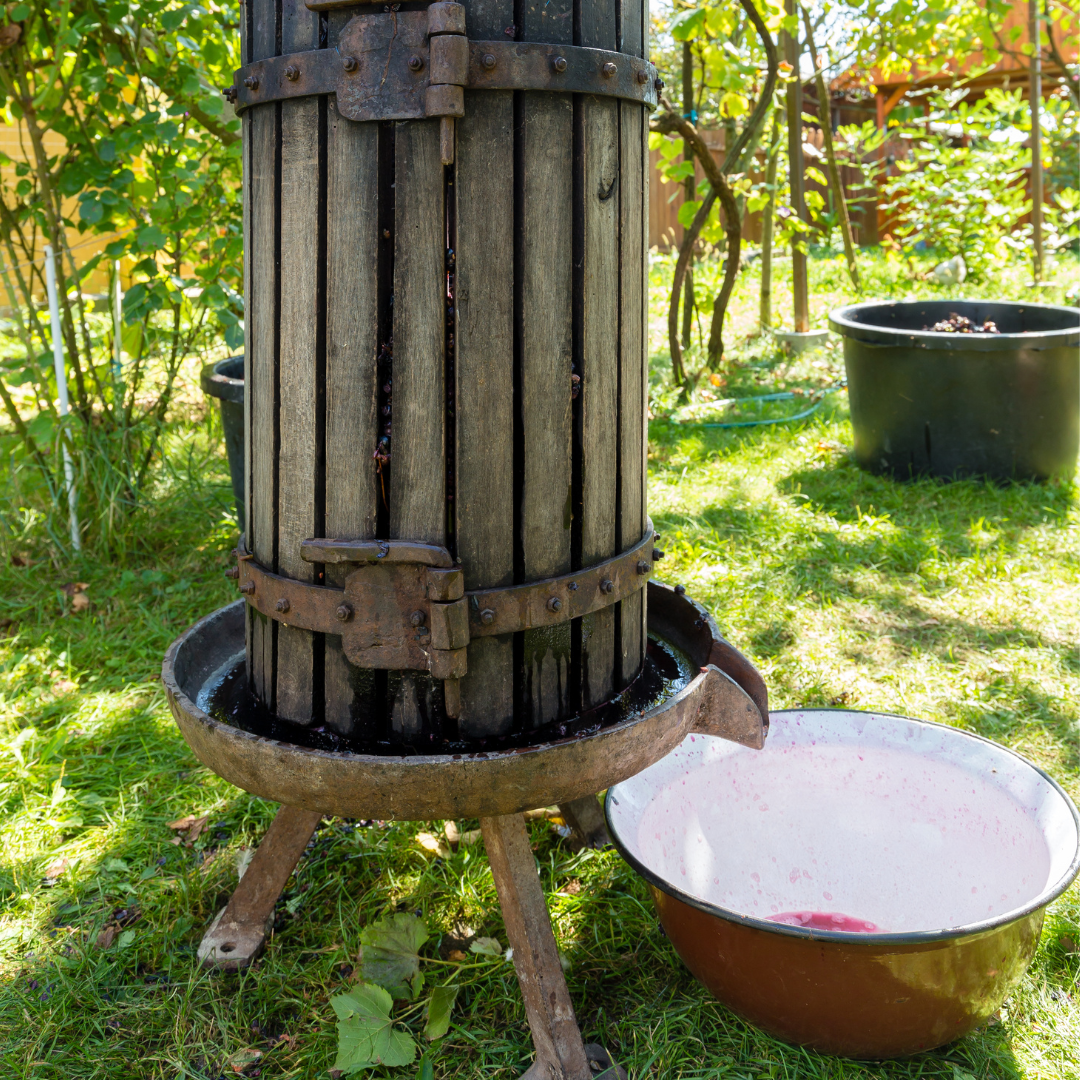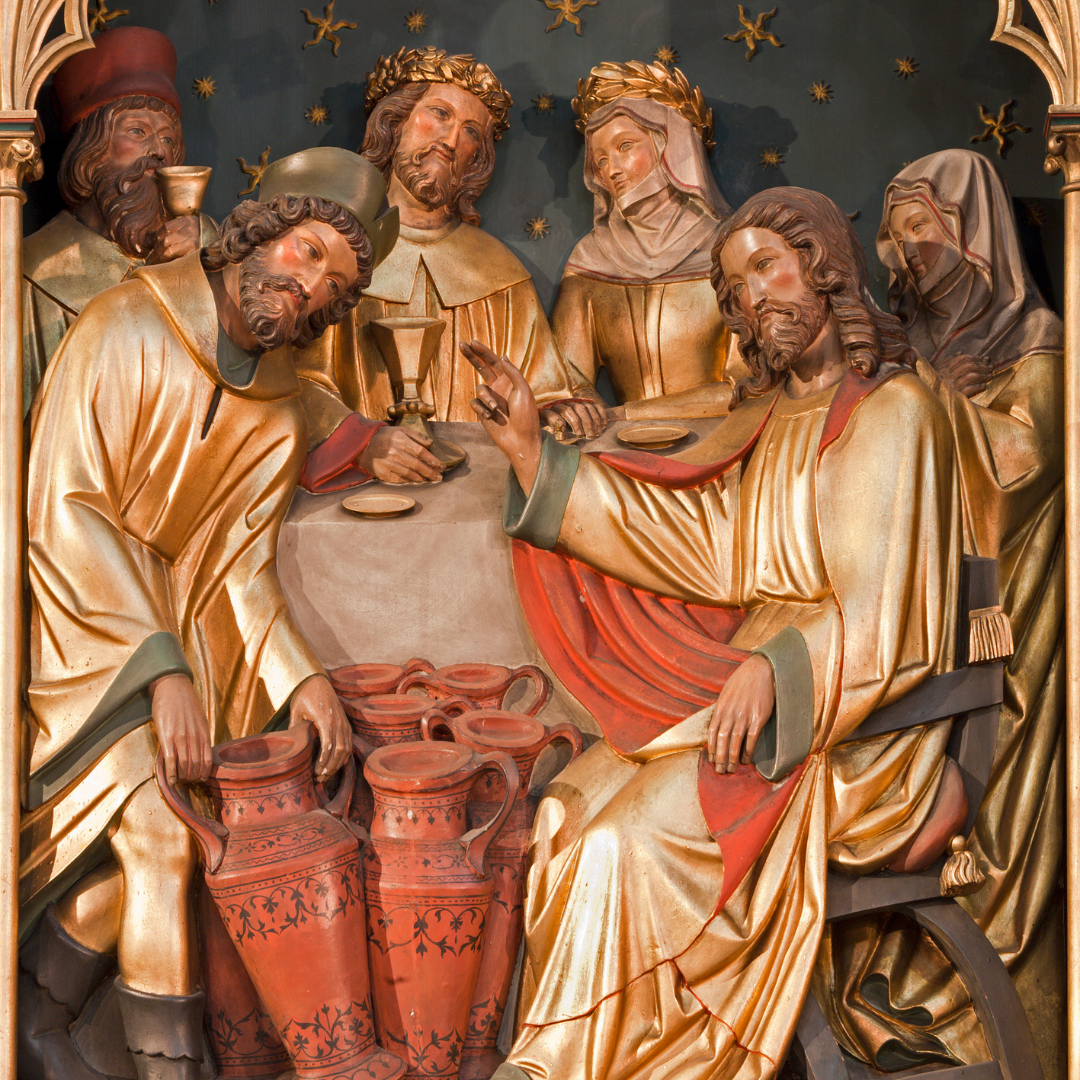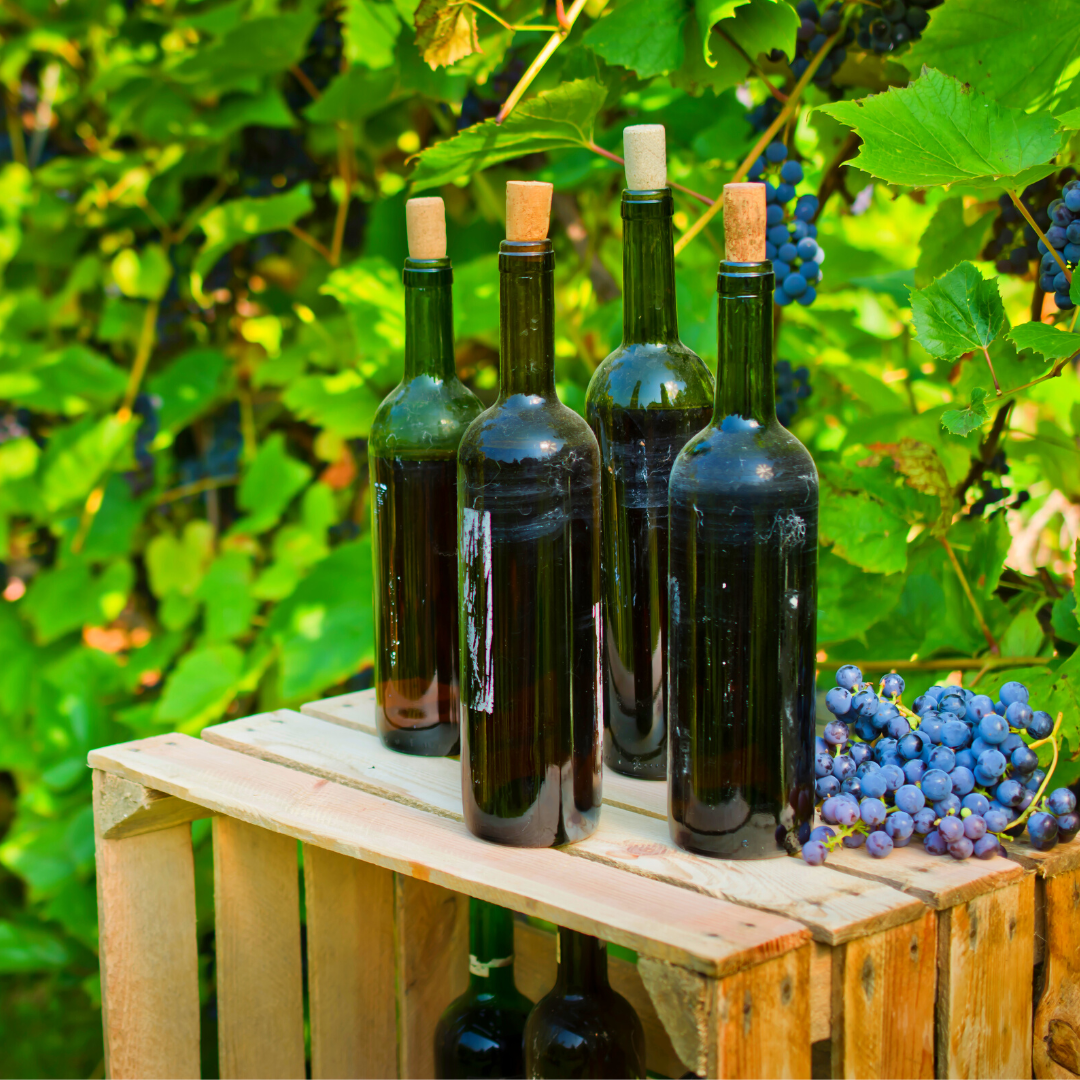
Laurie J. Schmitt's winemaking hobby taught her an unexpected lesson about the sacraments.
Several years ago, I took up a new hobby: making homemade wine. I have a little vineyard of Marquette and Frontenac vines, but even in the best of seasons these few short rows will produce at most one or two gallons of wine, so I stay with making wines from pre-packaged kits. This offers a variety of grape types, with complete directions, all of the necessary ingredients, as well as reminders of key points in the vintning process. I wish I could say that the more batches I make, the better they turn out, but that’s not so. The kits don’t guarantee perfect results: following the details in the directions does.
Over the years I’ve found that the biggest culprit—the one that transforms a good glass of wine into something more suitable for cooking—is bacteria. Microscopic dirt is airborne or lays insidiously in the tubing, the carboys, the lids and air locks, and other equipment. Taking the time to thoroughly sterilize all of the tools used in wine making is an essential step in creating wine that sparkles in the glass with see through clarity, fulfilling its promise with perfect balance of texture and taste. After all of my time and energy invested in making homemade wine, the last thing I want is a cloudy, sour glass of vinegar.

As a home vintner, I’ve come to appreciate everything it takes to make delicious wine, and sometimes have to smile when I imagine Jesus’ first miracle. When He changed the water into wine at the wedding feast of Cana, He started with dirty vessels, which were then filled to the brim by grimy-handed servants. More than likely the jars were carelessly managed, but we can guess that no sanitizer was used, other than the pure prayer and blessing of Christ Himself.
This scene begins with a gentle request from the Blessed Virgin Mary. She’s concerned about the happiness of the newly married couple, that the family would avoid an embarrassing moment, and that the guests joyfully continue in the celebration of life and love. “They have no wine,” is all that she says. It sounds like a prayer, an honest, heartfelt request for a miracle in the making. Mary is a both instigator and intercessor. She takes the lead in a moment of crisis, and before stepping back she says, “Do whatever He tells you.”

We are called to the wedding feast, but sometimes our souls look more like dirty vessels than guests spiffed up for a banquet. Each of us is in need of a miraculous transformation: we need to be sanitized and sanctified. Christ provides the means for us to get the murkiness, the grime of sin, wiped out of our innermost being, with the sacraments which He instituted while on earth. By participating in them, by receiving them with “right dispositions,” both sanctifying and sacramental grace are given to us.
The sacraments of Baptism and Penance are called the “sacraments of the dead'' because they restore the life of grace in us. Baptism is a one-time sacrament, removing original sin and restoring our relationship with our Creator. But how do we maintain a healthy relationship? The Sacrament of Reconciliation removes sins committed after Baptism, but Pope Pius XII, who went to Confession daily, cites many other benefits of frequent Confession:
By it [Confession] genuine self-knowledge is increased, Christian humility grows, bad habits are corrected, spiritual neglect and tepidity are resisted, the conscience is purified, the will strengthened, a salutary self-control is attained, and grace is increased in virtue of the Sacrament itself. (Mystici Corporis Christi, 88)
By drinking up the graces of sacramental Confession, by participating in the sacrament often, we are purified, but how often is often enough? Just for the record, Saints Teresa of Calcutta and Pope John Paul II went to Confession weekly. "It would be an illusion to seek after holiness,” the Pope said, “without partaking frequently of this sacrament of conversion and reconciliation. Those who go to Confession frequently, and do so with the desire to make progress, will notice the strides that they make in their spiritual lives."
We are called to share the message of the Gospel, the good wine with the world, and our souls need frequent scouring. Saint Padre Pio said: “Confession is the soul's bath.” In the sacrament of reconciliation, God washes us clean, so that He can fill us and spill us like wine at the wedding feast.

Copyright 2022 Laurie J. Schmitt
Images: Canva
About the Author

Laurie J. Schmitt
Laurie J. Schmitt, a veteran homeschooling mother of nine, is the author of Catholic historical fiction books for children, including Lepanto’s Lady (Our Lady of Victory and the Battle of Lepanto), Champions of the Rosary (Our Lady of Good Help and the Peshtigo Fire) and Giorgio’s Miracle (Eucharistic Miracle of Turin). Picture books coming soon. Follow her at LaurieSchmitt.com and on Instagram @LaurieSchmittbooks.


.png?width=1806&height=731&name=CatholicMom_hcfm_logo1_pos_871c_2728c%20(002).png)
Comments